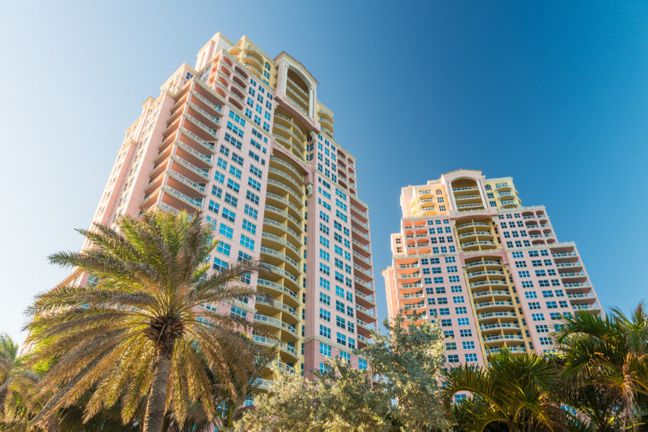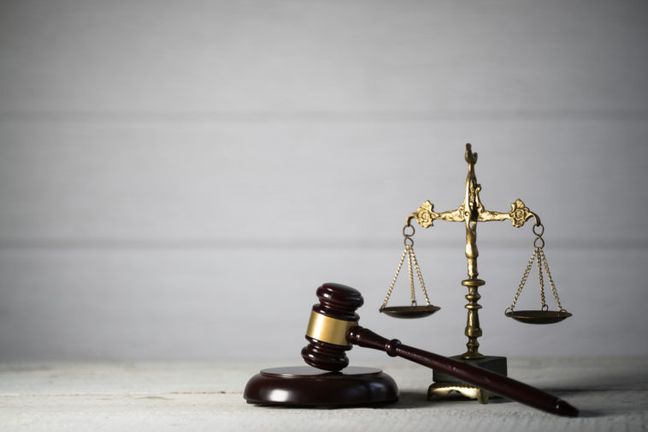As COVID-19 continues to impact every aspect of life, uncertainty abounds for Florida businesses forced to severely modify or even shutter their operations due to government mandates, health and safety risks and the excruciating reality of a global pandemic.
Florida business owners are looking to their insurance carriers to cover the losses brought on by the pandemic, whether via the forced closure of their businesses or the virus itself impacting business operations. In what will most likely be a series of lengthy legal disputes, insureds look to recover based on their expectations of coverage under policies they acquired before the pandemic, while insurers seek to pay on those claims for which coverage was agreed upon and, in turn, expressly provided under those policies.
On the legislative side, in May of this year, Florida Chief Financial Officer Jimmy Patronis asked a 27-member Florida congressional delegation to look for a way for small businesses to recover for losses due to COVID-19 emergency shutdowns. This came in the wake of Florida Insurance Commissioner David Altmaier’s statements on the issue. Commissioner Altmaier advised a subpanel of the Re-Open Florida Task Force that losses attributed to pandemics are not covered under most business interruption policies. Altmaier went on to raise the significant problems insurers would face if required to provide coverage for claims not contemplated by the policies.
Florida legislators find themselves the precarious position of potentially inserting the government into coverage determinations associated with contractual relationships between insureds and insurers. Any such legislation would be the subject of much controversy and certainly would test the bounds of the legislative branch’s ability to legislate around or through previously-negotiated contractual relationships.
Court cases have also ramped up in Florida state and federal courts, and where litigants seek the adjudication of coverage issues arising from this arguably unprecedented confluence of governmental intervention and virus-related business interruption. Determinations in these lawsuits will begin forging the path for the handling of existing and anticipated insurance claims.
In Pinellas County, Scottsdale Insurance Company was sued by a Florida restaurant for the alleged wrongful denial of a business interruption claim with business losses allegedly stemming from state-mandated COVID-19 closures. Plaintiff alleges the policy provides coverage for business losses and extra expenses resulting from an involuntary interruption of business operations, as well as for actions of civil authority.
In Broward County, Depositors Insurance Company is being sued for business interruption losses. Plaintiff, a wholesale distributor, contends its claim was wrongfully denied and the “all risk” policy provides coverage for business losses and extra expenses due to the involuntary interruption of business operations, as well as for governmental actions impacting business operations. Notably, the complaint alleges that the pandemic is a natural disaster. The plaintiff claims resultant damage includes substantial damage to property, hardship, suffering, and loss of life, akin to other disasters, such as earthquakes and hurricanes
Finally, in Clay County, a salon owner is pursuing a state court action against Hartford Casualty Insurance Company for business interruption losses as a result of COVID-19 closures in Florida. Plaintiff alleges the claim was denied because the virus did not cause property damage and thus business losses are not covered.
In federal court, actions have likewise been commenced to address the availability of coverage under “All Risk” policies, closures from the pandemic and the government measures to stop the spread of COVID-19. Specifically, the question to be addressed is whether these claims are covered by commercial property policies that do not specifically exclude viruses. See, e.g., El Novillo Restaurant, et al. v. Certain Underwriters at Lloyd’s, London et al., No. 1:20-cv-21525-UU (S.D. Fla. Apr. 9, 2020). COVID-19 litigation has also seen plaintiffs utilize a premises liability theory to contend government-mandated stay-at-home orders “were issued in response to dangerous physical conditions and caused a suspension of business operations on the covered premises.” See, e.g., Cafe International Holding Company LLC v. Chubb Ltd. et al., No. 1 1:20-cv-21641 (S.D. Fla. Apr. 20, 2020)
Both here in the United States and abroad, coverage litigation is and will be critical to both insured businesses and their insurers as economies seek to recover. These disputes also force governments to contemplate what if anything they can do to facilitate the recovery and sustainability of those same insureds and insurers who are bound by insurance agreements. In the United Kingdom, financial regulators are taking the fight directly to the courts where the Financial Conduct Authority is pursuing litigation against Europe’s largest insurers to force them to pay COVID-19-related claims.
Takeaway
At the end of the day, litigation in Florida and elsewhere will likely turn on ambiguities in the policies, which empower courts to interpret policies. Should policies be deemed ambiguous, insured business owners will be the likely benefactors of interpretations in their favor. One thing is for certain at this point, the stakes are high and those involved on both sides of the argument will be watching how these matters play out in the courts.

 Author: Harry Harrison
Author: Harry Harrison
 Cannabis Workers Allege Quota to Trim 4 Pounds a Day Violates the California Labor Code
Cannabis Workers Allege Quota to Trim 4 Pounds a Day Violates the California Labor Code
 The Ninth Circuit Reminds Us: Every Word Matters
The Ninth Circuit Reminds Us: Every Word Matters
 NO WAY, PRO SE! The Consequences of Abusing the Judicial System as a Pro Se Litigant in Colorado
NO WAY, PRO SE! The Consequences of Abusing the Judicial System as a Pro Se Litigant in Colorado
 Victim of Financial Mismanagement or Unlawful Retaliation? New Jersey City University Program Founder Claims School Retaliated After Reporting Alleged Sexual Harassment
Victim of Financial Mismanagement or Unlawful Retaliation? New Jersey City University Program Founder Claims School Retaliated After Reporting Alleged Sexual Harassment
 “Real Housewives” Gets a Reality Check
“Real Housewives” Gets a Reality Check
 Missing a Chapter: Insufficiency of Expert Deposition Testimony in Medical Malpractice Litigation
Missing a Chapter: Insufficiency of Expert Deposition Testimony in Medical Malpractice Litigation
 Crash Course: Why Summary Judgment Misses the Mark in Illinois Multi-Cause Limousine Crash Collision
Crash Course: Why Summary Judgment Misses the Mark in Illinois Multi-Cause Limousine Crash Collision
 Bitter Truths: Lead, Cadmium, and Defective Pleadings in California Chocolate Class Action
Bitter Truths: Lead, Cadmium, and Defective Pleadings in California Chocolate Class Action
 The Law of Unintended Consequences: Including Insurance Brokers in Litigation Strategy Communication May Waive the Attorney-Client Privilege
The Law of Unintended Consequences: Including Insurance Brokers in Litigation Strategy Communication May Waive the Attorney-Client Privilege
 The End of Vaccination Requirements by The Federal Government and Beyond: What Does It Mean for Employers?
The End of Vaccination Requirements by The Federal Government and Beyond: What Does It Mean for Employers?
 The Tragic and Curious Case of A Train vs. Pedestrian Collision Gone Nuclear
The Tragic and Curious Case of A Train vs. Pedestrian Collision Gone Nuclear
 California Deemed It Was Time: Bereavement Leave for Employees
California Deemed It Was Time: Bereavement Leave for Employees
 How Broad is Too Broad When Interpreting Insurance Policy Provisions? NJ Supreme Court Weighs In
How Broad is Too Broad When Interpreting Insurance Policy Provisions? NJ Supreme Court Weighs In
 “Use It or Lose It” No More – Colorado Supreme Court Weighs in on Employee’s Rights to Compensation for Accrued Vacation Pay
“Use It or Lose It” No More – Colorado Supreme Court Weighs in on Employee’s Rights to Compensation for Accrued Vacation Pay
 The Constitutionality of Caps – The High Court in Tennessee Upholds Statutory Limits on Noneconomic Damages
The Constitutionality of Caps – The High Court in Tennessee Upholds Statutory Limits on Noneconomic Damages
 Pre-Employment Drug Testing: What Nevada Employers and EPL Insurers Need to Know
Pre-Employment Drug Testing: What Nevada Employers and EPL Insurers Need to Know
 The Nevada Gaming Commission Takes Aim at Workplace Sexual Harassment and Discrimination, Increase Penalties for Violations
The Nevada Gaming Commission Takes Aim at Workplace Sexual Harassment and Discrimination, Increase Penalties for Violations